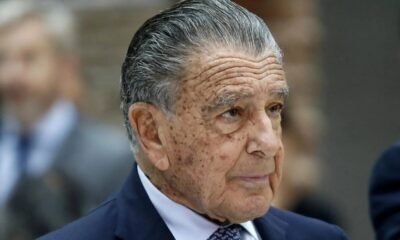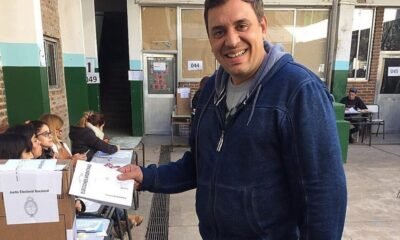INTERNACIONAL
Everything you need to know about Ayatollah Ali Khamenei , supreme leader of Iran
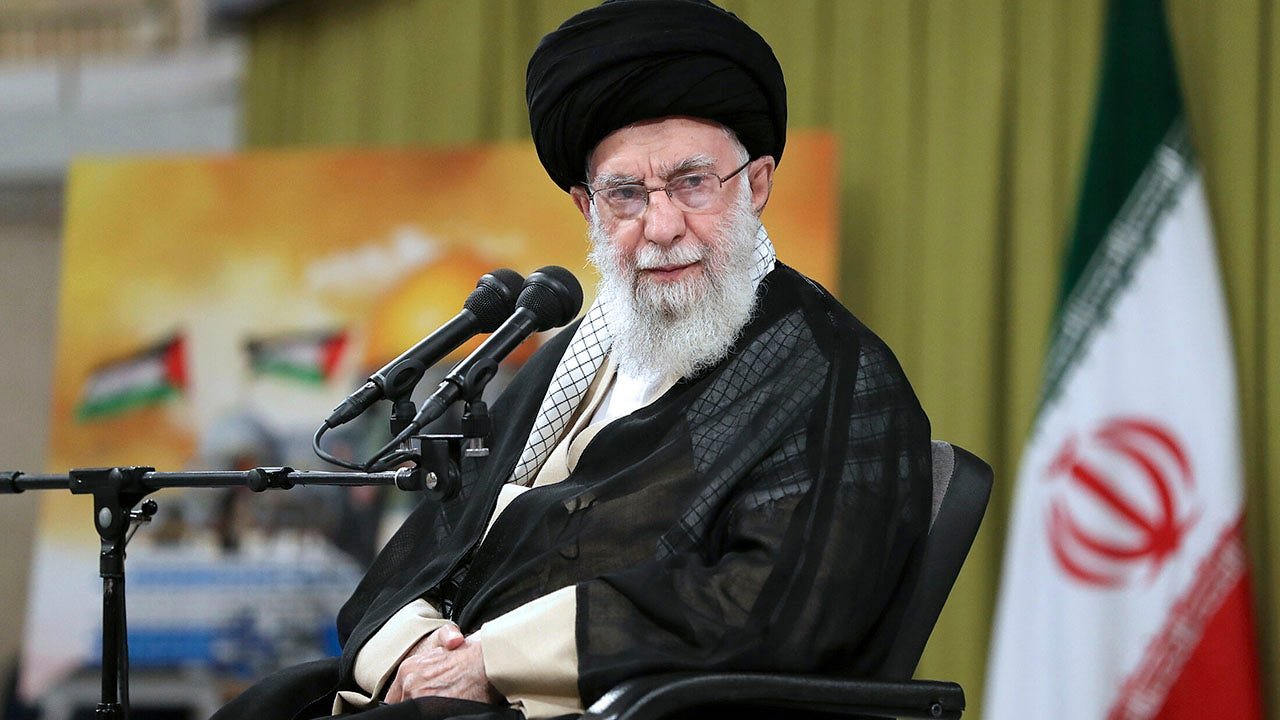
NEWYou can now listen to Fox News articles!
A week after Israel launched a surprise attack on Iran aiming to wipe out its nuclear program, all eyes are now on the country’s reclusive supreme leader, Ayatollah Ali Khamenei.
On Thursday, following an Iranian missile strike that hit an Israeli hospital, Israel Defense Minister Israel Katz said in a statement that «Khamenei will be held accountable for his crimes,» adding during a visit to one of the impact sites that «a person like that should not exist,» later calling him «the modern day Hitler,» according to the Times of Israel.
Over decades of rule, Khamenei has built an impenetrable circle around him both inside and outside of Iran. Now, with Israel taking out some of his closest aides and senior security figures, as well as significantly weakening its militant Islamic allies across the region, the supreme leader is beginning to look increasingly isolated.
IRAN STRIKES MAJOR ISRAELI HOSPITAL AFTER CLAIMING ISRAEL HIT ITS ARAK HEAVY WATER REACTOR
Supreme Leader Ali Khamenei is standing with military leaders. (AP)
«He calls himself a revolutionary, not a diplomat,» Dr. Meir Javedanfar, a lecturer in Iran Studies at Reichman University near Tel Aviv who grew up in Tehran, told Fox News Digital, adding that he sees himself as a «revolutionary.»
On Wednesday, that militancy and determination to stay in power came through in statements by Khamenei, who said the «Iranian nation will not surrender» and «war will be met with war, bombing with bombing, and strike with strike,» according to local media reports.
Born in 1939 to a religious but modest family in Mashad, eastern Iran, Khamenei was among the Islamist activists who played an instrumental role in the pivotal 1979 revolution to overthrow the U.S.-backed shah, Mohammad Reza Pahlavi.
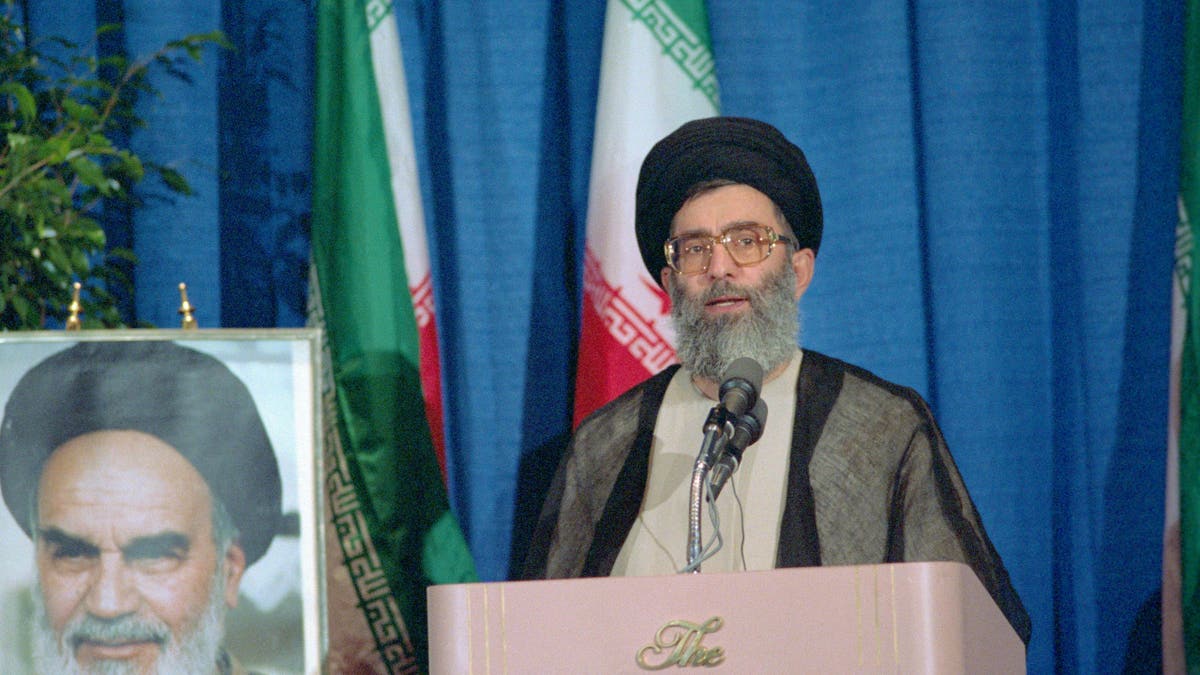
Ayatollah Ali Khamenei was President of Iran twice and a close ally of the country’s first supreme leader, Ayatollah Ruhollah Khomeni. (Getty images)
A close ally of Iran’s first supreme leader, Ayatollah Ruhollah Khomeini, who led the revolution and founded the Islamic Republic, Khamenei emerged as a trusted lieutenant, helping to promote the new regime’s concept of religiously-dominated governance.
For much of the 1980s, he served as Iran’s president, a largely ceremonious role. Additionally, when Khomeini died in 1989, Khamenei, who according to some reports was not yet qualified for the position, rose to become the country’s supreme leader.
Since then, Khamenei has worked to consolidate his absolute power, tightening his grip on the country’s political, military and security apparatus, while cracking down on dissent and taking a firm stand against progressive ideas, the West and Israel.
Lisa Daftari, an expert on Iran and editor-in-chief of The Foreign Desk, told Fox News Digital, «Ayatollah Ali Khamenei’s rule has been marked by unrelenting brutality and repression, both within Iran and beyond its borders. Under his direct command, the regime has executed hundreds of prisoners in just the past year, including women, and continues to hold the world record for executions and torture.
«The state police and notorious ‘morality police,’ all under Khamenei’s control, enforce a severe interpretation of Sharia law, violently suppressing dissent and targeting women and minorities. His apparatus has not only silenced opponents at home through mass arrests, torture, and extrajudicial killings, but has also orchestrated assassinations of dissidents abroad and exported terror across the region.»
Daftari concluded, «Khamenei’s regime is responsible for the deaths of countless Iranians and even Americans, with blood on his hands from both domestic crackdowns and international violence. For almost five decades, Iran has been run as a police state, where fear, surveillance, and systematic human rights abuses are tools of governance and methods of regime survival.»
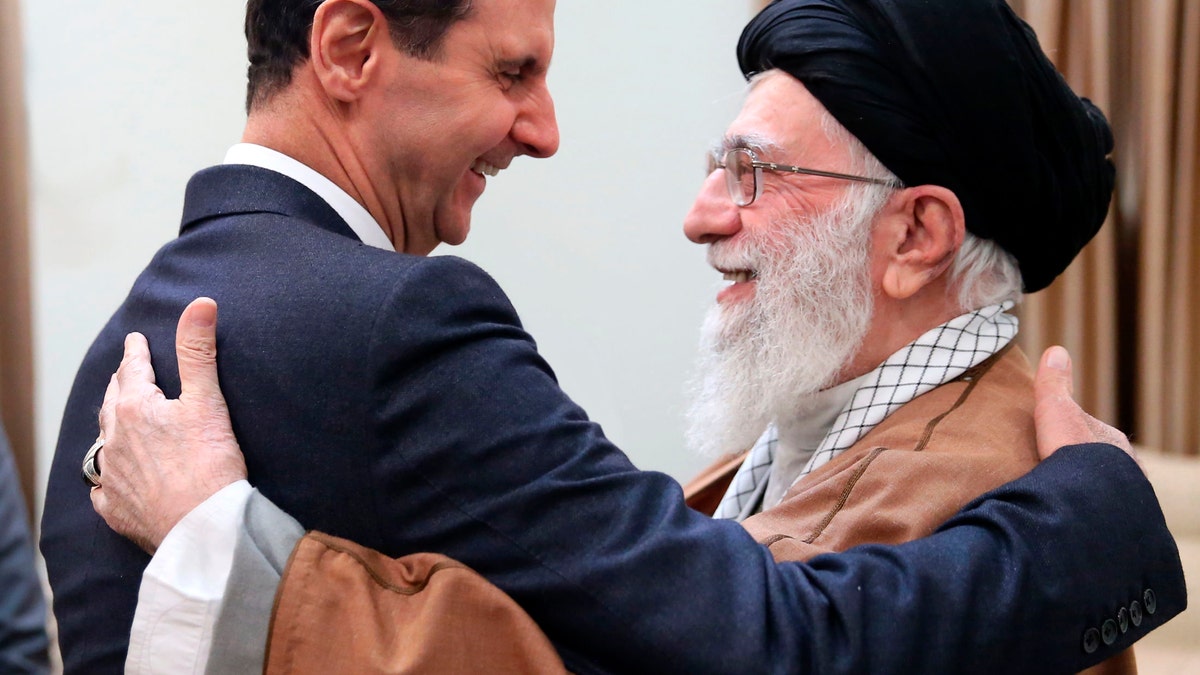
Iranian Supreme Leader Ayatollah Ali Khamenei, right, greets then-Syrian President Bashar Assad in Tehran, Iran, on Feb. 25, 2019. (Office of the Iranian Supreme Leader via AP, File)
FOX NEWS POLL: VOTERS THINK IRAN POSES A REAL THREAT TO US SECURITY, BUT SPLIT ON ISRAEL’S STRIKES
Khamenei has also invested heavily in the so-called axis of resistance across the region, including backing the Palestinian terrorist group Hamas, Hezbollah in Lebanon, the Houthi movement in Yemen and other militant militias. Many of these allies, as well as the regime of Bashar al-Assad in Syria, have collapsed over the last year and a half under Israeli military pressure.
Inside Iran, Khamenei’s conservative-style of leadership has faced challenges over the years, including briefly in 2009 following elections where Khamenei declared victory for the incumbent president, Mahmoud Ahmadinejad, sparking massive popular demonstrations – with some protestors calling for Khamenei’s downfall.
Mass protests also broke out in the autumn of 2022 after Mahsa Amini, a 22-year-old, died while detained by the morality police for allegedly wearing her headscarf improperly. The protests were brutally put down, with many of those arrested put to death by his regime.
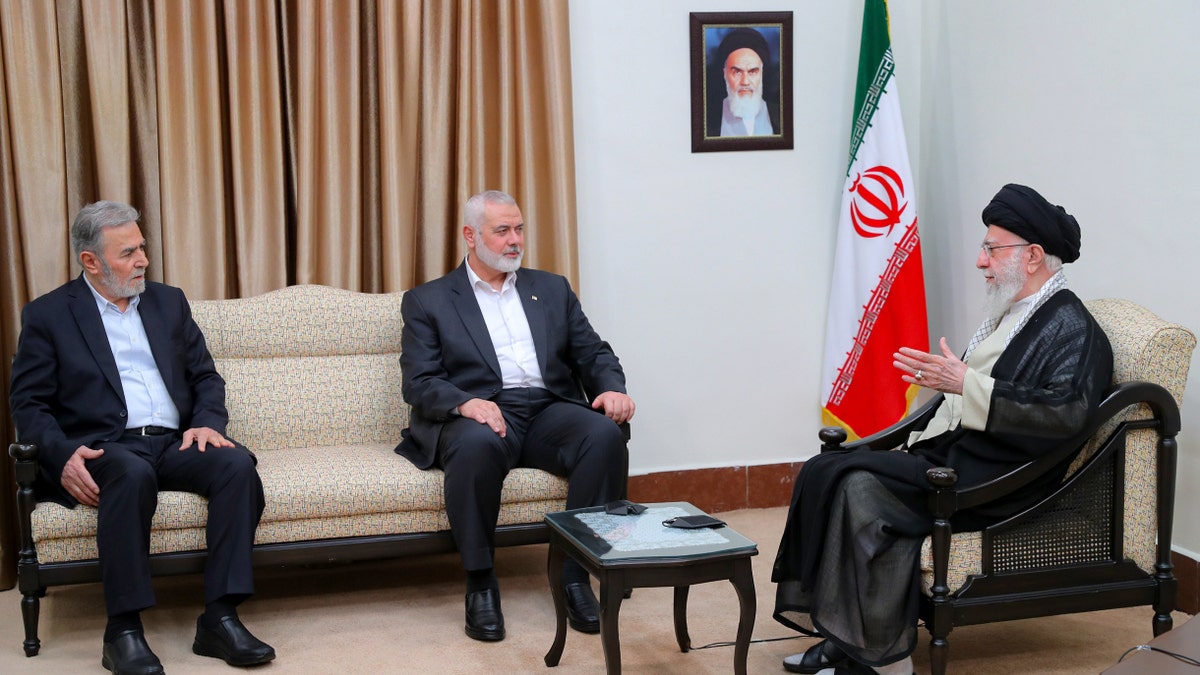
Iranian Supreme Leader Ayatollah Ali Khamenei, right, meets Secretary General of the Islamic Jihad Movement Ziyad al-Nakhalah, left, and the former head of the Hamas terror group Ismail Haniyeh, who was assassinated one day after this photo was taken, Tehran, Iran, on July 30, 2024. (Iranian Leader Press Office / Handout/Anadolu via Getty Images)
However, according to the Council For Foreign Relations, Iran’s supreme leader remains «leader for life» under a clerical ruling system that puts him at the head of state and affords him vast control derived from religious authority.
CLICK HERE TO GET THE FOX NEWS APP
«When he was a young man, he studied the writings of the founders of Muslim Brotherhood, and always believed in militant Islam,» said Javedanfar, adding that he has also «always been anti-Israel to the point of antisemitism.»

Supreme Leader Ayatollah Ali Khamenei waves to the crowd while attending a ceremony marking the 30th death anniversary of the late revolutionary founder Ayatollah Khomeini, shown in the poster at rear, at his mausoleum just outside Tehran, Iran, on Tuesday, June 4, 2019. Ayatollah Khamenei said his country will continue resisting U.S. economic and political pressure on his country. (Office of the Iranian Supreme Leader via AP)
«I think he believes in confronting Israel in every means possible,» he said, noting that there are no signs Khamenei is interested in backing down.
«I’m sure many people had warned him that supporting Hamas after October 7, and Hezbollah and other groups could bring war to Iran’s territory but he obviously, he didn’t listen,» Javedanfar said.
INTERNACIONAL
Israel anunció una pausa parcial de los combates en Gaza y los primeros camiones con ayuda cruzan la frontera
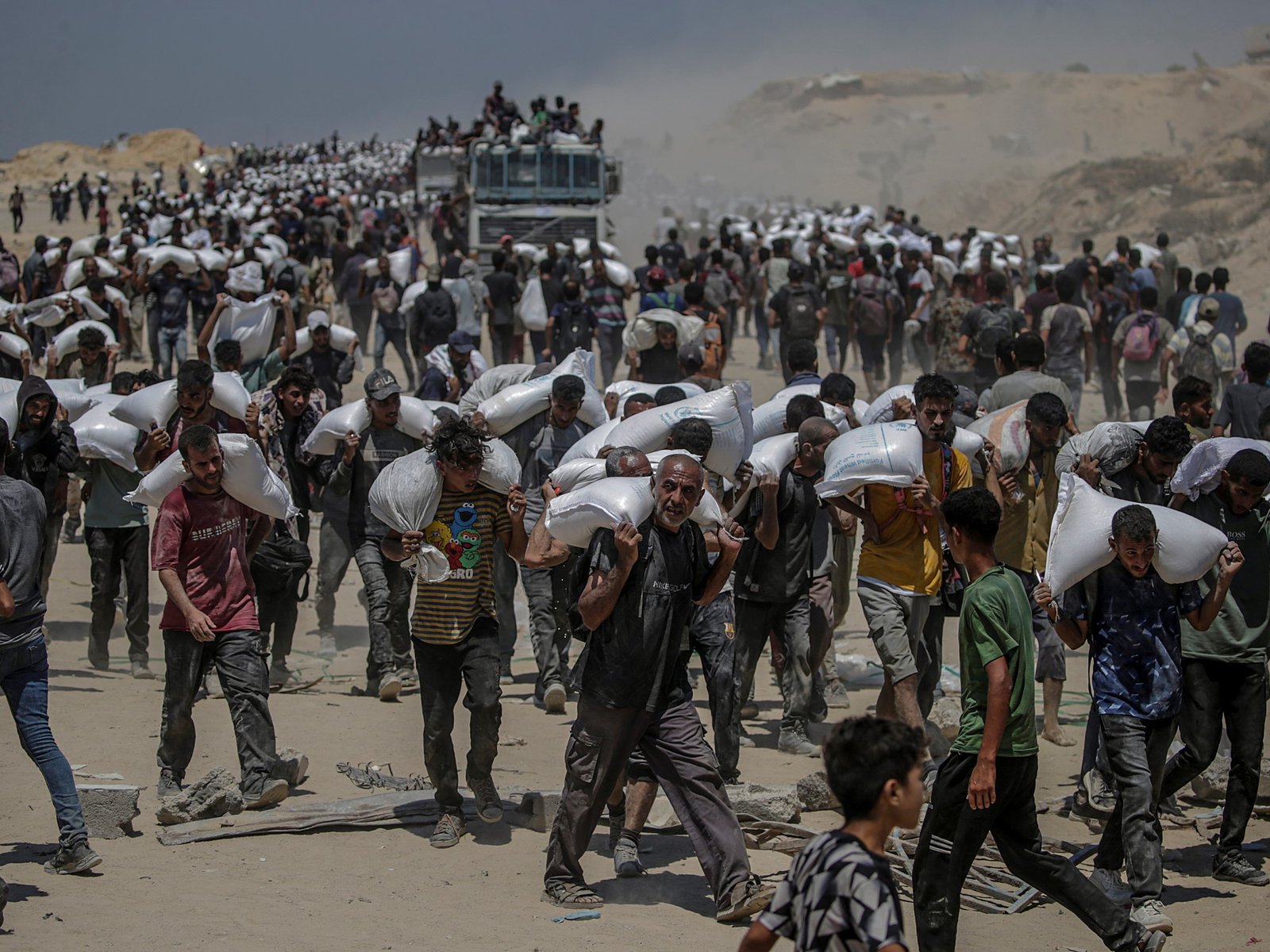
Israel,Hamas,Franja de Gaza
INTERNACIONAL
Rubio rips Venezuela’s Maduro as ‘narco-terrorist’ leader threatening US one year after disputed election
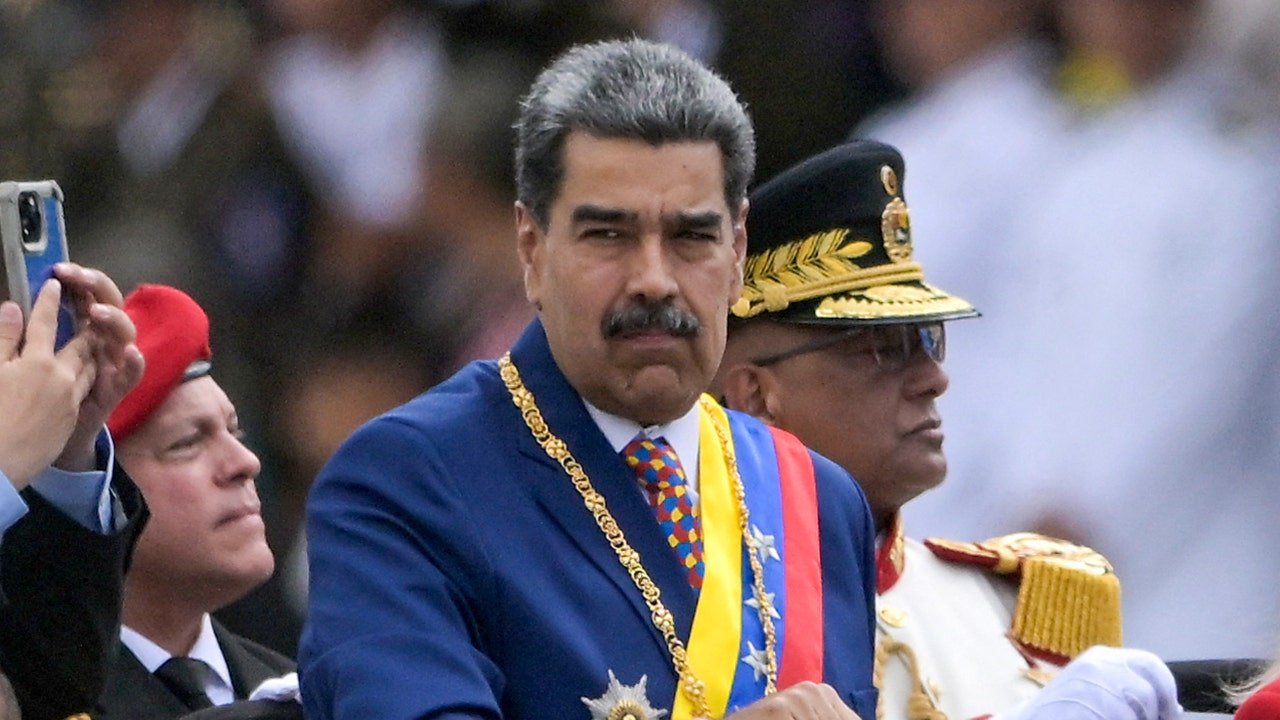
NEWYou can now listen to Fox News articles!
Secretary of State Marco Rubio is hammering Venezuelan dictator Nicolás Maduro on Sunday as the South American country holds municipal elections to fill hundreds of mayoral positions and thousands of council seats.
The municipal contests are happening one day before the one-year anniversary of Venezuela’s presidential election, which was widely condemned by the United States and other international observers as illegitimate. The Trump administration, meanwhile, has been escalating pressure against Maduro in recent days, as Treasury Secretary Scott Bessent on Friday accused the foreign head of state of being the leader of an entity aiding terrorism against the U.S.
«One year since dictator Nicolás Maduro defied the will of the Venezuelan people by baselessly declaring himself the winner, the United States remains firm in its unwavering support to Venezuela’s restoration of democratic order and justice,» Rubio said in a statement on Sunday. «Maduro is not the President of Venezuela and his regime is not the legitimate government.»
TRUMP FOE BOASBERG ORDERS DOJ TO DETAIL STATUS OF CECOT MIGRANTS SENT TO VENEZUELA
Venezuela’s President Nicolas Maduro parades in a military vehicle during celebrations for the Independence Day, in Caracas on July 5, 2025. (JUAN BARRETO/AFP via Getty Images)
«Maduro is the leader of the designated narco-terrorist organization Cartel de Los Soles, and he is responsible for trafficking drugs into the United States and Europe,» Rubio continued. «Maduro, currently indicted by our nation, has corrupted Venezuela’s institutions to assist the cartel’s criminal narco-trafficking scheme into the United States.»
The Justice Department charged Maduro and 14 other former and current Venezuelan officials with narco-terrorism, corruption, drug trafficking and other criminal charges in March 2020. At the start of this year, 10 days before President Donald Trump returned to office, the State Department increased its reward for information leading to Maduro’s capture from $15 million to up to $25 million.
«For years, Maduro and his cronies have manipulated Venezuela’s electoral system to maintain their illegitimate grip on power,» Rubio added on Sunday. «By scheduling the municipal elections on the eve of the anniversary of the stolen July 28 presidential election, the regime once again aims to deploy the military and police to suppress the will of the Venezuelan people.»
«The United States will continue working with our partners to hold accountable the corrupt, criminal and illegitimate Maduro regime. Those who steal elections and use force to grasp power undermine America’s national security interests,» Rubio said.
Maduro became the Venezuelan president in 2013, but the U.S. has not recognized his presidency since 2019. The U.S. and other countries have refused to recognize Maduro as the winner of the July 2024 Venezuelan election, citing widespread fraud.
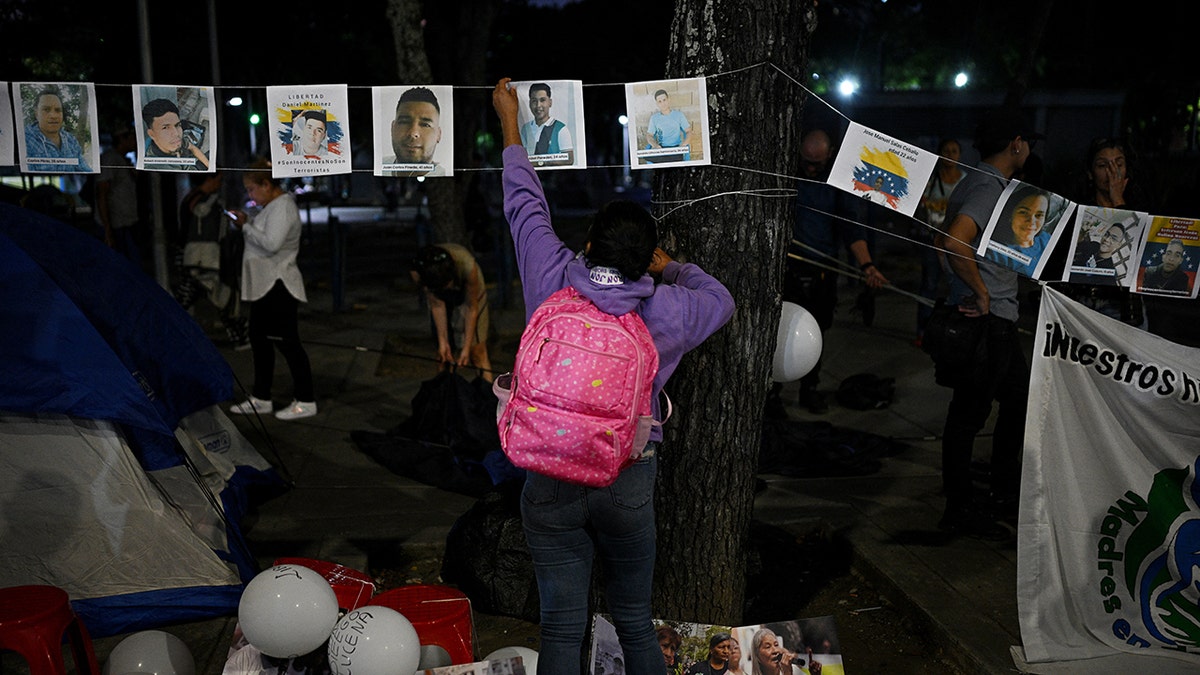
A relative of people detained during protests following the disputed July 28, 2024, presidential elections takes part in a vigil demanding their release in front of the Public Prosecutor’s Office in Caracas on July 16, 2025. (FEDERICO PARRA/AFP via Getty Images)
VENEZUELAN OPPOSITION MEMBER DETAILS HARROWING 400-DAY CAPTIVITY AT UN
The Treasury Department on Friday sanctioned the Cartel de los Soles, also known as Cartel of the Suns, as a «Specially Designated Global Terrorist.» The U.S. alleges that Cartel de los Soles is headed by Maduro and other Venezuelan high-ranking individuals in his regime «who corrupted the institutions of government in Venezuela, including parts of the military, intelligence apparatus, legislature, and the judiciary, to assist the cartel’s endeavors of trafficking narcotics into the United States.»
The U.S. claims the Venezuela-based group provides material support to Tren de Aragua and the Sinaloa Cartel. The Trump administration classified Tren de Aragua and the Sinaloa Cartel as foreign terrorist organizations in February.
According to the Treasury Department, the name Cartel de los Soles is derived from the sun insignias often portrayed on the uniforms of Venezuelan military officials.
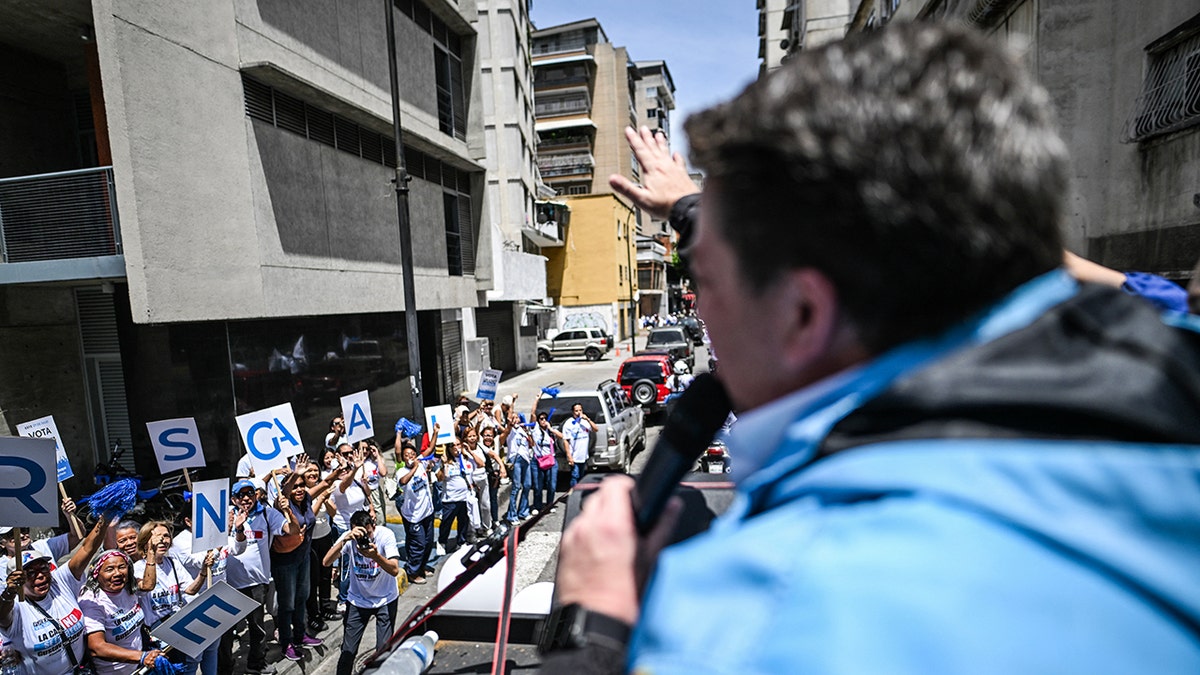
The mayor of the Chacao municipality, Gustavo Duque, speaks to supporters at the start of the election campaign for the municipal elections in Caracas on July 11, 2025. Elections for mayors and councilors will be held on July 27. (JUAN BARRETO/AFP via Getty Images)
The cartel «supports Tren de Aragua in carrying out its objective of using the flood of illegal narcotics as a weapon against the United States,» according to the Treasury Department.
Bessent said on Friday that the new action «exposes the illegitimate Maduro regime’s facilitation of narco-terrorism through terrorist groups like Cartel de los Soles.»
CLICK HERE TO GET THE FOX NEWS APP
«The Treasury Department will continue to execute on President Trump’s pledge to put America First by cracking down on violent organizations including Tren de Aragua, the Sinaloa Cartel, and their facilitators, like Cartel de los Soles,» he added.
INTERNACIONAL
Trump-inspired ‘Japanese first’ politician shakes up nation’s establishment
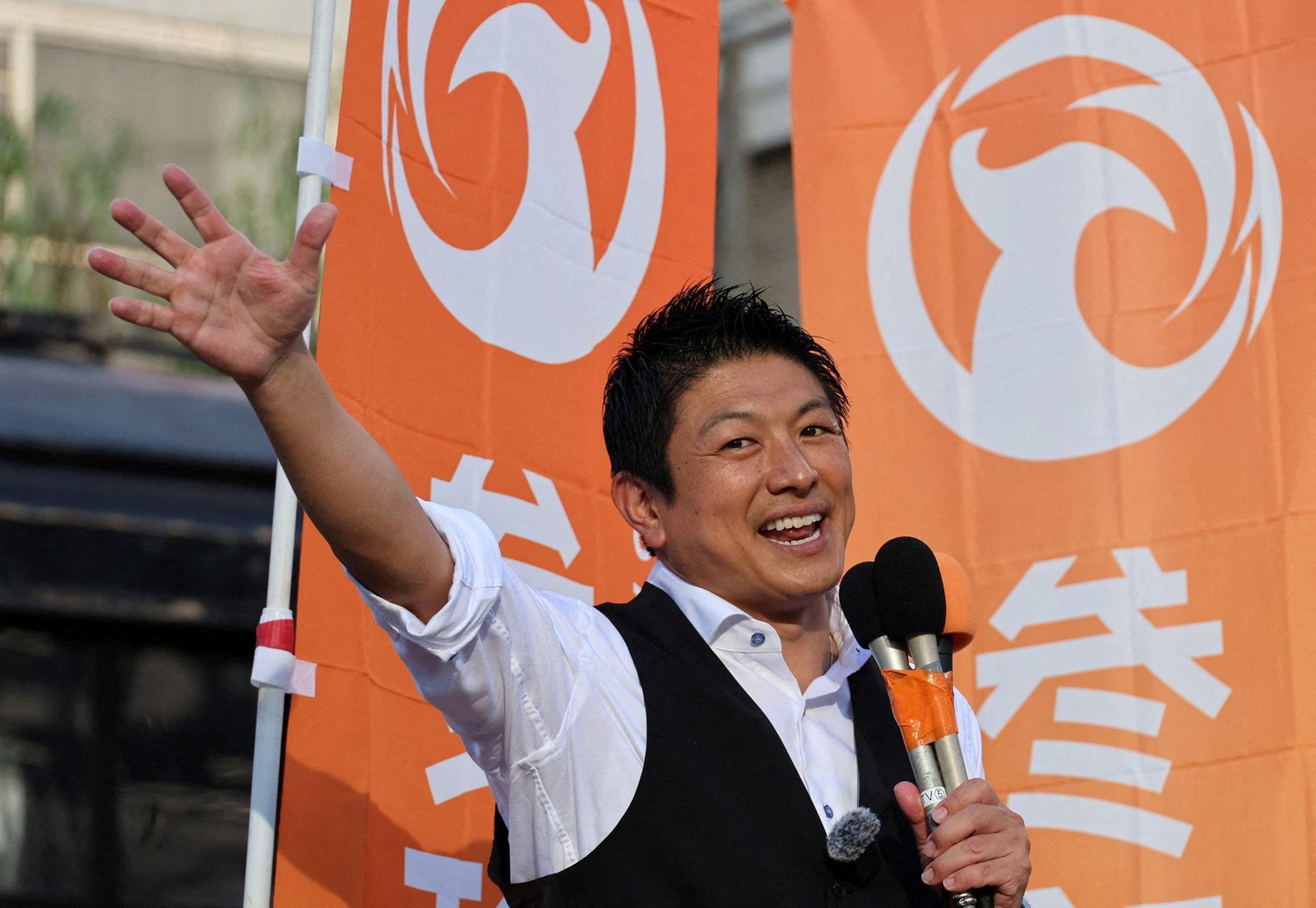
NEWYou can now listen to Fox News articles!
Japanese populist Sohei Kamiya stunned many in the country when his Sanseitō party won 14 seats in Japan’s Upper House elections last week.
«From supermarket manager to bright political star … populism has hit the shores of Japan like a tsunami,» Gatestone Institute senior fellow Gordon Chang told Fox News Digital about 47-year-old Kamiya’s surprise achievement.
Holding 15 of 248 Upper House seats is not sufficient for Kamiya’s party to submit legislation. However, polling data shows Sanseitō’s impact with younger voters, as Kyodo News reported that more than 20% of voters from 18 to 40 voted for his party.
TRUMP SECURES HISTORIC $550B TRADE DEAL WITH JAPAN: ‘NEVER BEEN ANYTHING LIKE IT’
Japan’s Sanseito Party leader Sohei Kamiya poses with his lawmakers during the party’s rally in Tokyo on July 21, 2025, a day after the upper house election. (REUTERS/Kim Kyung-Hoon)
Inspired by President Donald Trump’s leadership style, Kamiya’s rise has largely been attributed to his social media savvy. He snagged his earliest followers through his opposition to «blanket mask mandates, mass PCR testing, and vaccine requirements» during the COVID-19 pandemic, Japan Forward reported.
Kamiya has also adopted a spin-off of Trump’s MAGA motto, proclaiming «Japanese first» as his party promises to strengthen Japan’s culture, birth rates and food sufficiency, while finding solutions for its reliance on immigration.
Though the Western media has characterized Kamiya as far-right, fringe or xenophobic, Lance Gatling, a principal at Nexial Research, Tokyo, told Fox News Digital that while Kamiya’s goals of «protecting Japan, growing Japan, and educating Japan» are «fairly populist,» they do not represent «a radical move towards the right wing.»
In fact, Gatling said many in the Liberal Democratic Party (LDP), which has dominated Japanese politics for decades, «are more right-wing than Sanseitō.» Gatling described members of Kamiya’s party as «pretty reasonable.»
Gaitlin said that Kamiya, formerly a reservist in the Self-Defense Forces and an English teacher, «doesn’t appear to be playing.» Kamiya «has been honing his message for some time,» Gatling said.
JAPANESE GOVERNMENT RESPONDS TO BIDEN CLAIM THAT JAPAN IS ‘XENOPHOBIC’: ‘UNFORTUNATE’
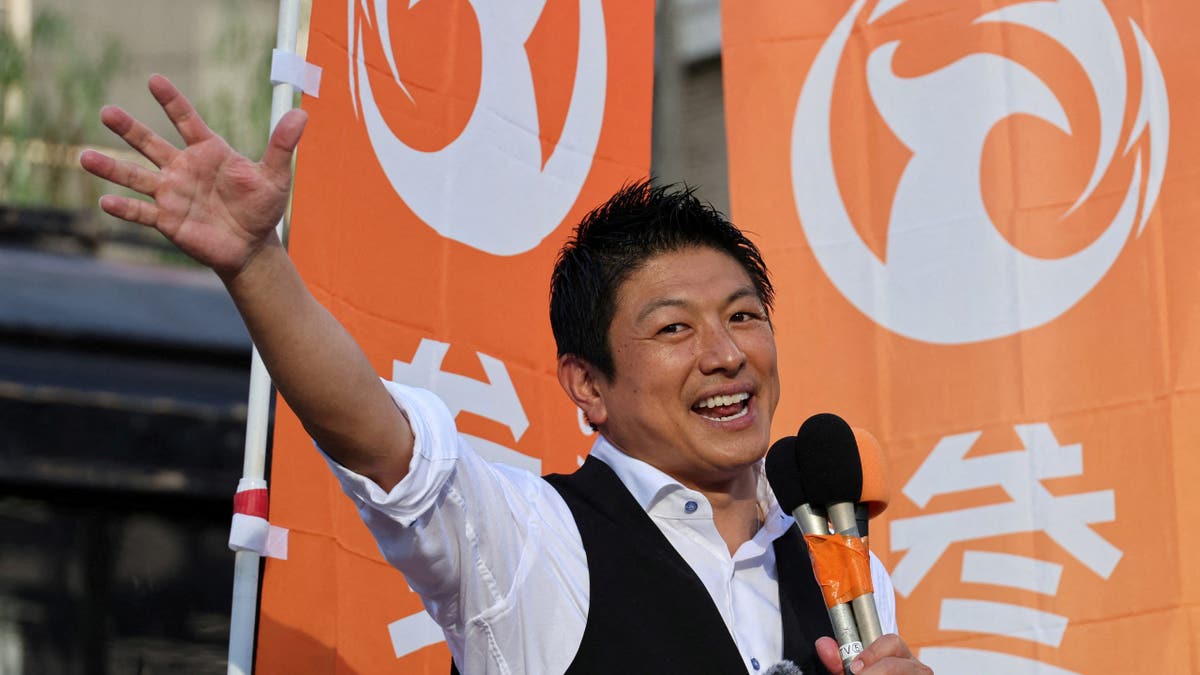
Japan’s Sanseito Party leader Sohei Kamiya delivers a speech during the party’s rally in Tokyo on July 21, 2025, a day after the upper house election. (REUTERS/Kim Kyung-Hoon TPX IMAGES OF THE DAY/File Photo)
Some critics have expressed particular concern over what they call Kamiya’s anti-immigration stance. Immigration, however, has become a chief issue for the island nation. When former President Joe Biden called Japan «xenophobic» for failing to increase immigration in May 2024, Kamiya responded on social media. «It’s not that we’re xenophobic, we are being cautious after seeing your failures,» Kamiya said. «You are meddling too much in our internal affairs.»
Gatling says categorizing the Japanese as xenophobic «just doesn’t ring true.» He explained that the country has «one of the most astonishing cultures in history,» formed by adopting Western culture and enriching it to create «a completely unique culture that has tremendous appeal around the world.»
Gatling says Kamiya is aiming for a return to traditional cultural values, while also lowering taxes and increasing food self-sufficiency, which is currently the lowest rate of all Organization for Economic Co-operation and Development nations at 38%.
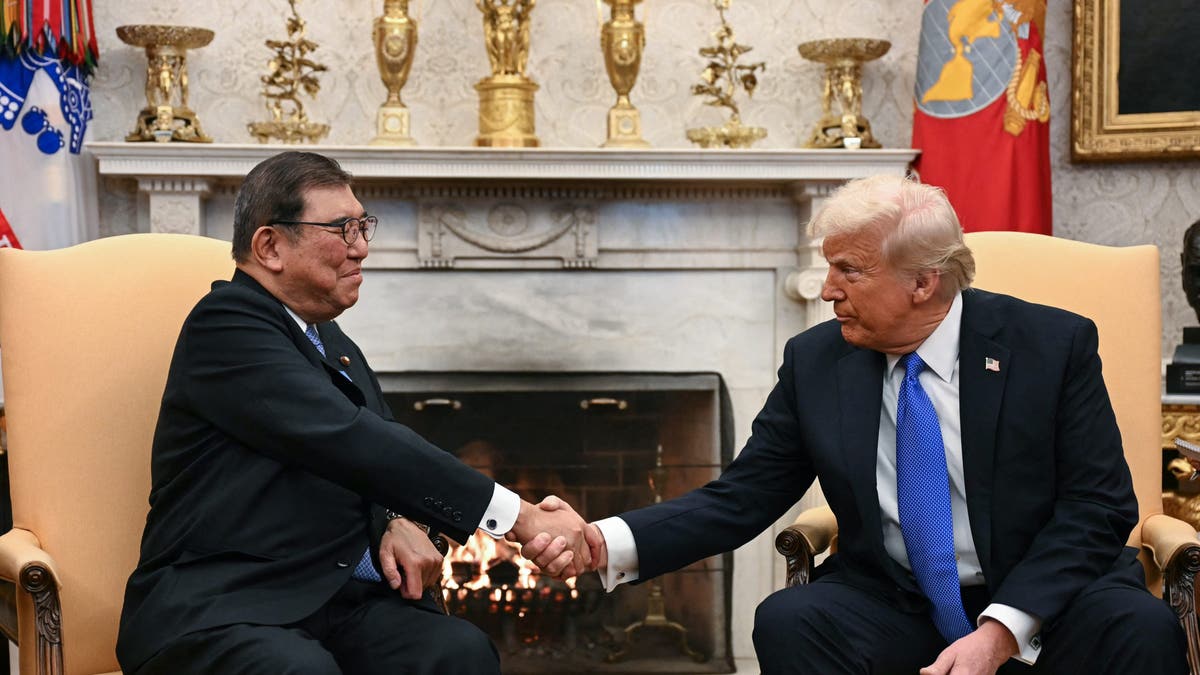
President Donald Trump, right, shakes hands with Japanese Prime Minister Shigeru Ishiba in the Oval Office of the White House in Washington, D.C., on Feb. 7, 2025. (Getty Images)
The rice trade would be critical to this arrangement, with Sanseitō eager to curb imports of U.S. rice. At present, imports of U.S. rice are set to increase by 75%, thanks to a $550 billion trade deal President Donald Trump signed with Japan on July 22.
Another possible friction point in the future might be Sanseitō’s desire to turn the nation’s farmers into public sector employees, Gatling admitted. «The agriculture bloc is one of the most powerful in the LDP,» he explained. «I’m not sure how many of the farmers want to be public sector employees.»
While he says that it is too early to determine the future of Sanseitō in Japanese politics, Gatling said Kamiya has stated he is not «interested in building a coalition government.» Gatling believes the party’s future will hinge on preparations for subsequent elections and demonstrating that «they have reasonable policies.»
Chang said Sanseitō’s win was a loss for the LDP, which he says has «been adrift» since Abe’s 2020 resignation and subsequent 2022 assassination. Current Prime Minister Shigeru Ishiba «is weak and unpopular,» and the LDP now finds itself «in the minority in both houses of the Diet for the first time since the party was formed in 1955,» Chang said. «Ishiba is naturally catching the blame.»
CLICK HERE TO GET THE FOX NEWS APP
While the political waves leave Japan «rudderless,» Chang said to «expect Sanseitō to only get stronger, which means Japan will turn inward. Around the world, societies have had enough of large foreign populations that do not assimilate, so we should not be surprised that Kamiya will become even more influential.
«Change occurs slowly in Japan until it happens all at once. Japan is now on the verge of an all-at-once moment,» Chang said.

 POLITICA2 días ago
POLITICA2 días agoCristina Kirchner pidió salir a militar para que los que “están hambreando a la gente tengan su merecido en las urnas”

 POLITICA3 días ago
POLITICA3 días agoEl candidato libertario por el que Kicillof despidió a 24 policías denunció “una cacería de brujas” en la Provincia

 POLITICA3 días ago
POLITICA3 días agoLa Justicia de Santa Cruz habilitó a Cristina Kirchner a votar, a pesar de la condena por corrupción













